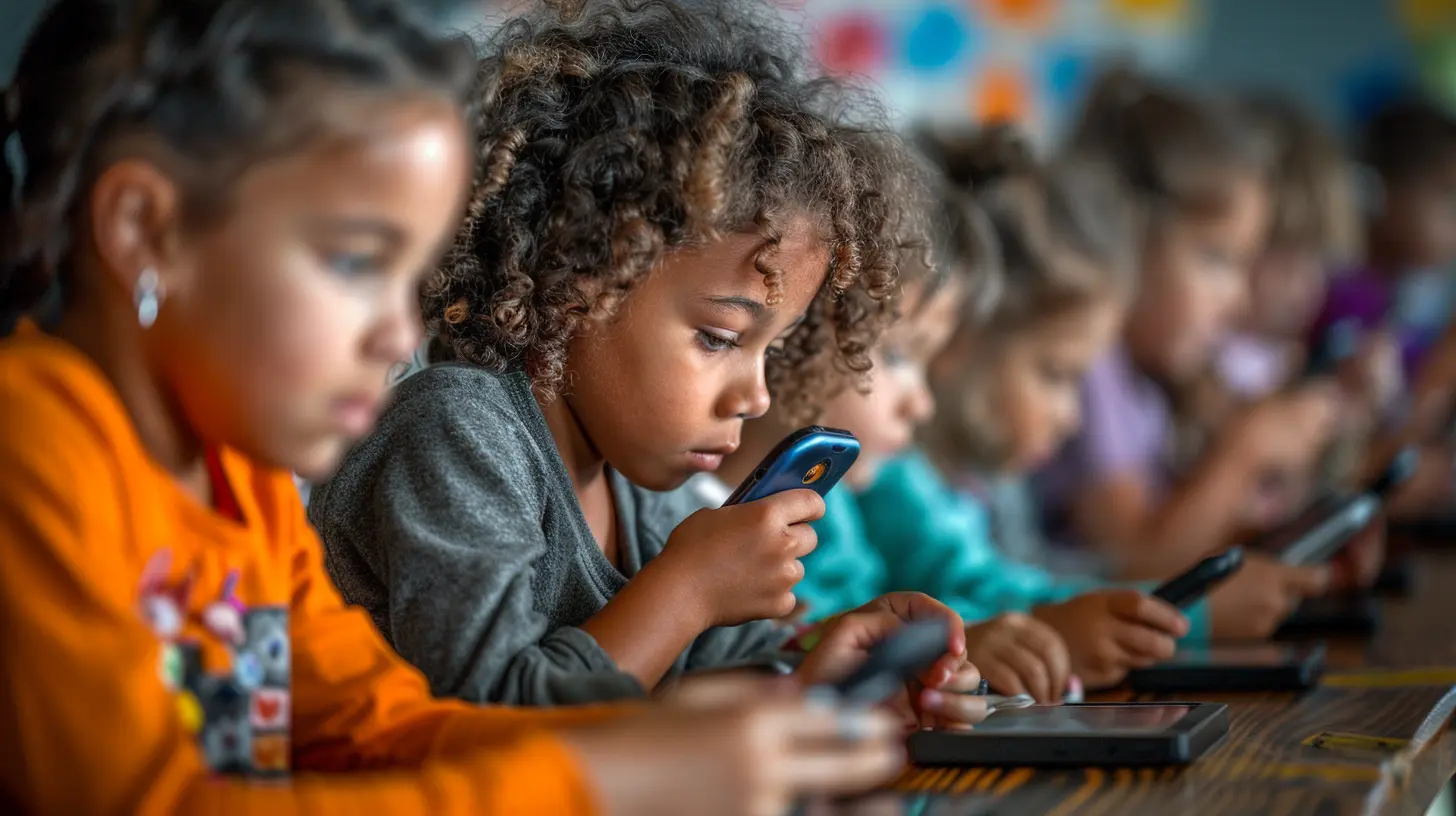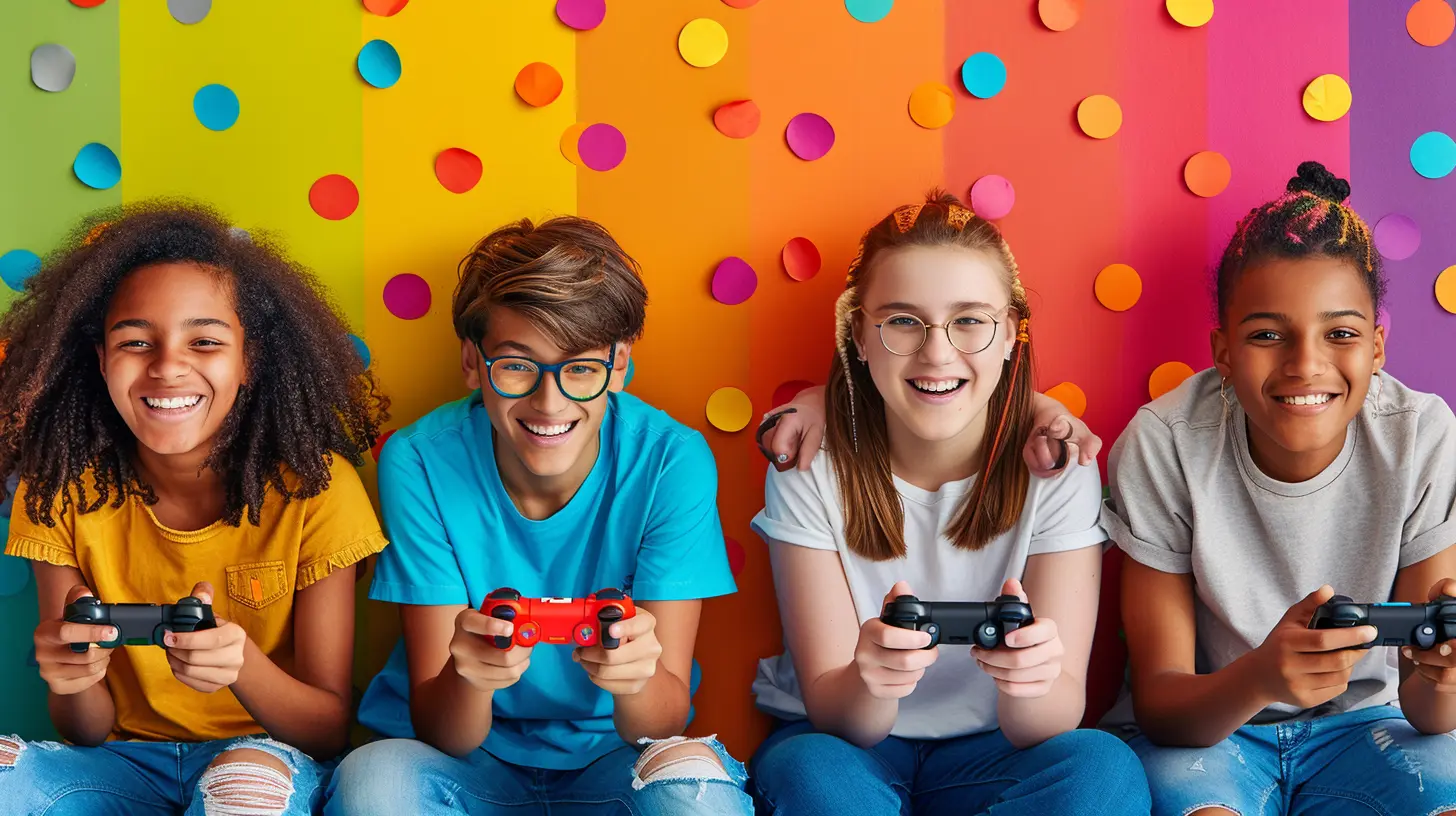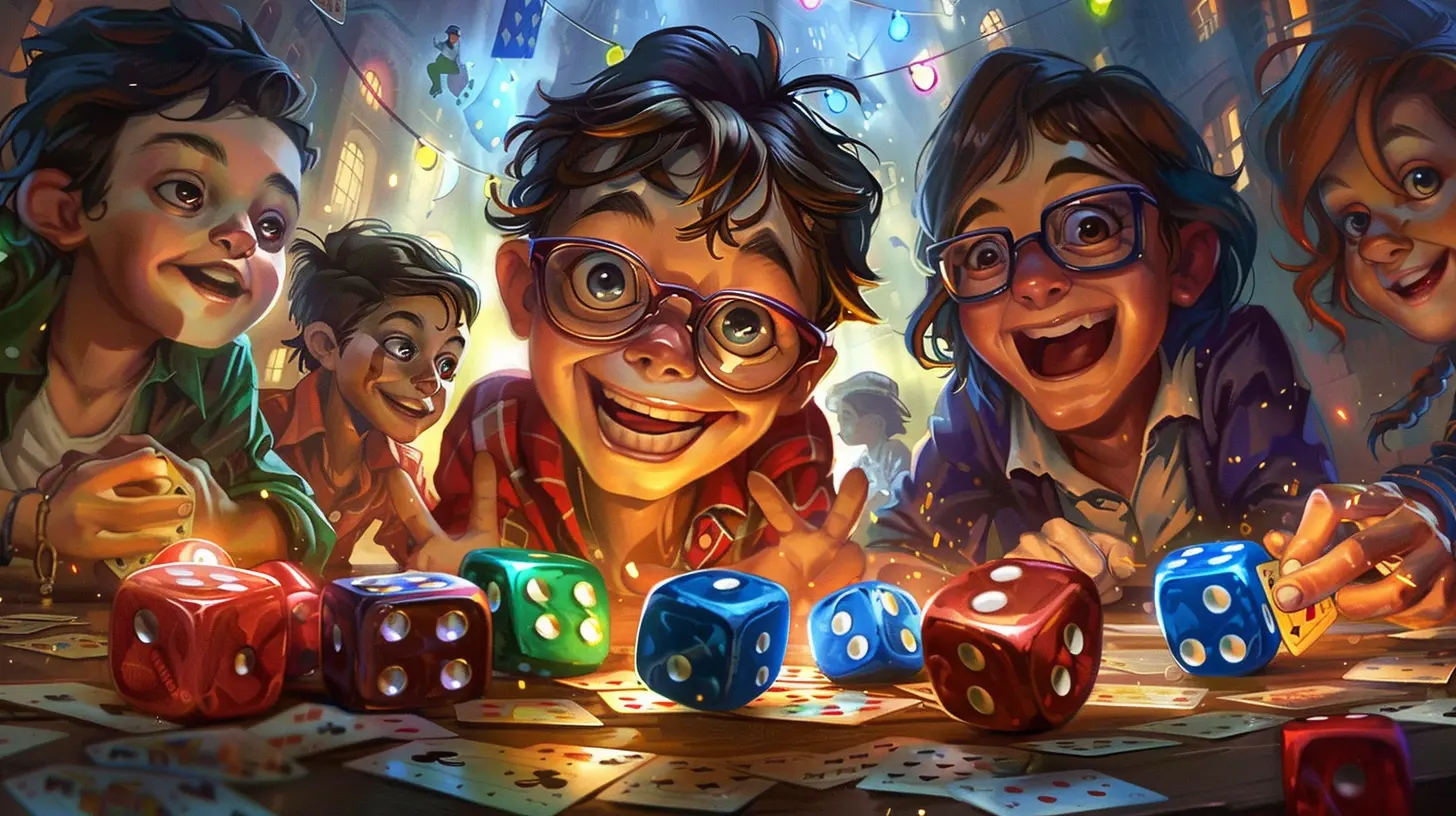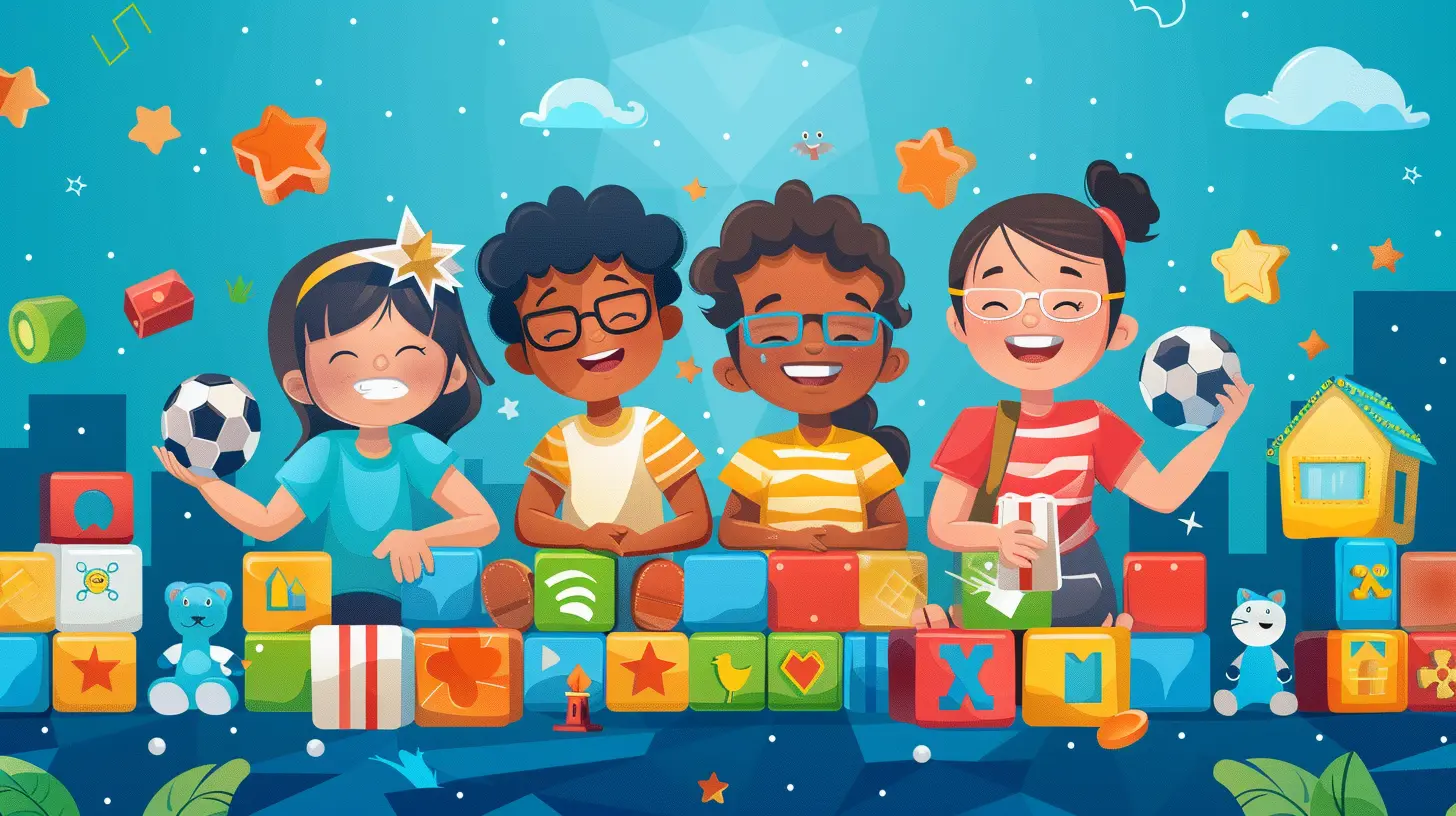The Surprising Educational Benefits of Social Games
26 July 2025
Think social games are just mindless fun? Think again. While many people assume that games played on mobile devices or consoles are a waste of time, countless studies — and personal experiences — tell a different story. Social games, the ones you play with or against others online, actually offer a treasure trove of educational benefits. Yeah, you heard that right. These games can teach, train, and transform how we learn.
Pull up a chair (or couch), grab your favorite controller or phone, and let’s unpack how playing social games can do a whole lot more than just pass the time.
What Are Social Games, Anyway?
Before we dive in, let’s clear up what we mean by “social games.” These are games that involve interactions with other players. Whether you're competing, collaborating, or just chatting during gameplay, social interaction is key. Think games like:- Fortnite
- Among Us
- Roblox
- Clash of Clans
- Animal Crossing
- Words With Friends
Most of them are online, multi-player games where players team up, cooperate or challenge each other — often in real-time.
The Classroom Without Desks: How Gaming Becomes Learning
You might not find a textbook in Fortnite or a math lecture in Minecraft (well, maybe in one of the educational mods), but make no mistake — learning is happening.Let’s break it down.
1. Critical Thinking & Problem Solving
Ever tried to outmaneuver an enemy in Clash Royale or strategize with your squad in Apex Legends? Social games are mental gyms wrapped in flashy graphics. Players constantly evaluate situations, make quick decisions, and re-evaluate their tactics on the fly.It’s like chess on steroids.
Whether you're solving puzzles, managing resources, or figuring out who the imposter is in Among Us, your brain is doing heavy lifting. Critical thinking doesn’t always come from lectures — often, it’s born in the heat of digital battle.
2. Communication Skills (Yeah, Even Typing “GG” Helps)
Social games thrive on communication. Whether it’s syncing plans in Valorant, organizing raids in World of Warcraft, or just talking trash in Rocket League — players engage. And here’s the cool part: communication improves.Players learn:
- Team coordination
- Conflict resolution
- Active listening
- Expressing ideas clearly
It’s not just chatting for the sake of it — it’s dynamic, purpose-driven conversation. And for younger players or those learning a second language, that’s gold.
3. Collaboration & Teamwork
Not to get cheesy, but teamwork really does make the dream work — especially in social games. These games reward players who can work together effectively.Consider this:
In games like Overwatch or League of Legends, lone wolves don’t stand a chance. Success demands strategy, role distribution, and mutual support. Over time, this builds a natural sense of collaboration, which is a valuable life and workplace skill.
Just think of it as practice for group projects — without the awkward silences and passive-aggressive messages.
4. Creativity & Imagination
Not all games are about guns and glory. Some are pure imagination playgrounds.Games like Minecraft, Roblox, and The Sims allow players to build worlds, design characters, and script stories. These types of games encourage original thinking and creativity. Players are given the freedom to make something from nothing — like a digital version of a blank canvas.
And isn’t that what every artist, designer, and innovator needs?
5. Cultural Awareness & Empathy
Here’s something that often flies under the radar — empathy.Online social games are global. You could be playing with someone from Japan, Germany, Brazil, or Nigeria — and not even realize it. Over time, players gain exposure to different cultures, perspectives, and ways of communication.
When you work with people from around the world, even in a digital space, you're building cultural fluency. And through role-playing games, players often step into another character's shoes. That helps build — you guessed it — empathy.
Isn’t that a lesson the world could use a little more of?
6. Goal Setting & Perseverance
Social games constantly throw challenges your way. Daily quests, XP grinding, leveling up, achievements — there’s always something to reach for.And whether it's unlocking a new skin or beating a high-score, players quickly learn how to:
- Set goals
- Develop strategies to achieve them
- Deal with failures (aka “respawning”)
- Try again — and again
This kind of resilience transfers into real life. When kids or even adults learn not to give up after failing a game level, they’re less likely to give up on real-life tasks.
7. Literacy & Language Skills
Wait — language skills?Yep. Tons of games, especially MMORPGs and text-heavy narrative games, require reading comprehension and understandings of complex instructions.
Games like Stardew Valley and Pokémon have players reading and processing lines of dialogue. Even more so, games with real-time chat — like RuneScape or Final Fantasy XIV — push players to read, type, and understand quickly.
For ESL (English as a Second Language) learners, this is an incredibly fun way to soak up vocabulary and sentence structure. Bonus: no boring grammar drills.
8. Time and Resource Management
You ever try managing a farm in Stardew Valley or running a guild in World of Warcraft?It’s more complex than real-life budgeting sometimes.
Players learn to:
- Prioritize actions
- Manage virtual currency or items
- Schedule events with teams
- Balance in-game responsibilities with real-life time
It’s the kind of multitasking parents wish kids could practice while doing homework. Luckily, many social games embed these lessons without feeling like a chore.
9. Emotional Regulation and Stress Management
Let’s face it — winning feels great. Losing? Not so much.Social games often create high-stress scenarios: close matches, time limits, unexpected failures. Players who spend time in this digital dojo gradually learn how to manage their emotions, stay calm under pressure, and bounce back from setbacks.
It's like emotional CrossFit — except you're playing with a mouse instead of lifting weights.
Sure, some gamers do rage-quit... but the majority learn to control emotions to keep their cool and their friends.
10. Safe Spaces for Social Development
This one’s especially big for kids and teenagers.Social games can provide a low-pressure environment to meet new people, form friendships, and practice social cues. For introverts or socially anxious players, it’s a great starting point to build connections without the awkward face-to-face part.
And for many, gaming communities turn into tribe-like support systems, complete with shared goals, inside jokes, and even heartfelt conversations.
Let’s just say there’s more to those Discord servers than memes and banter.
What About the Parents?
If you’re a parent reading this, you might still be a little skeptical. Totally fair. But here’s the deal — not all screen time is created equal.The key is balance and healthy involvement. Instead of banning games altogether, why not try:
- Co-playing occasionally (yes, even if you lose)
- Talking about what your kid is learning in-game
- Setting boundaries to ensure gaming doesn't replace homework or sleep
They’ll get more out of it, and so will you.
How Educators Are Catching On
Believe it or not, many teachers are now embracing the power of social games for teaching everything from math to storytelling to digital citizenship.Classroom-friendly games like:
- Kahoot!
- Minecraft: Education Edition
- Classcraft
are being used to gamify the learning process. Why? Because it works. Kids are already motivated to engage with games — why not leverage that enthusiasm in education?
It’s like sneaking veggies into a smoothie. They don’t even realize it’s good for them!
The Flip Side: What to Watch Out For
Of course, this wouldn’t be a fair article if we didn’t mention the cons.Too much gaming can lead to:
- Screen addiction
- Exposure to toxic behavior
- Distraction from responsibilities
- Sleep issues
But with proper guidance, moderation, and awareness, these risks can be minimized. It’s all about balance, boundaries, and communication.
Use parental settings, set screen time limits, and keep that dialogue open.
Wrapping Up: Learning in Disguise
Here’s the big takeaway — social games aren’t just digital playgrounds. They're dynamic spaces for learning, growing, and connecting.Behind every avatar is a brain solving problems, managing emotions, collaborating with others, and — whether they know it or not — getting a real-world education.
So the next time someone scoffs at social games, maybe don’t roll your eyes. Just smile and say, “Actually, it’s kind of like school — only way more fun.”
Who knew leveling up in a game could mean leveling up in life?
all images in this post were generated using AI tools
Category:
Social GamesAuthor:

Kaitlyn Pace
Discussion
rate this article
1 comments
Julia Myers
Great insights! Social games truly enhance teamwork and critical thinking skills.
August 12, 2025 at 4:43 AM

Kaitlyn Pace
Thank you! I’m glad you found the insights valuable. Social games indeed play a significant role in developing essential skills.


